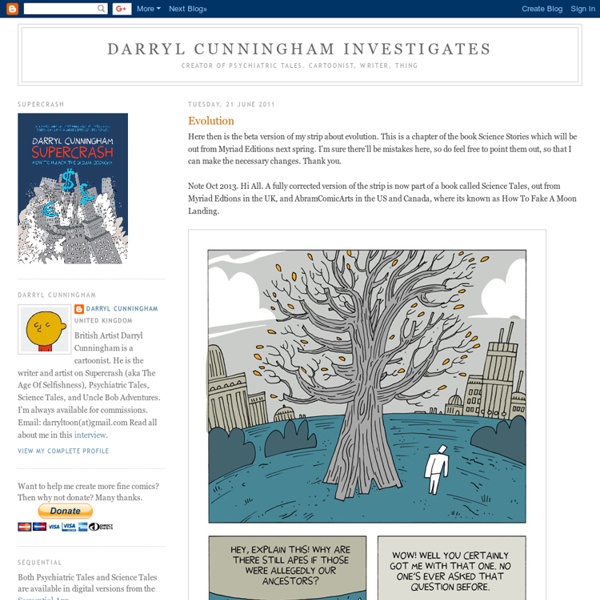



Social Skills: Kids vs. Apes By Ari Daniel Shapiro Posted 10.04.12 NOVA scienceNOW We humans are exceptionally good at manipulating our environment, but what makes us so successful compared with other primates? Our intelligence? Our opposable thumbs? A clever experiment conducted in Africa and Europe suggests another answer: our social skills. Listen to the story. To see what sets humans apart, anthropologist Victoria Wobber challenges young apes and children to do the same tasks. On a warm afternoon in Cambridge, Massachusetts, a few dozen kids and adults have found refuge on a shaded playground. "There are a number of kids playing on slides," she says, watching all the activity. The scene is so familiar that it's hardly remarkable. "Look at the boy using a shovel to get the sand into that container," she says. Anthropologist Victoria Wobber, at a playground near her office at Harvard University. An elegant experiment Wobber came up with a way to unravel these questions as part of her Ph.D. work at Harvard University.
Science News, Articles and Information | Scientific American Hollywoodonomics: how Harry Potter and The Order of the Phoenix "lost" $167M Last summer, Deadline released this balance-sheet ("participation statement") detailing the alleged financial state of the corporate entity struck to run the Warner Bros movie "Harry Potter and The Order of the Phoenix." The movie, which had grossed nearly $1B at the time, was nevertheless running $167M in the red. The losses are largely attributable to to prints and advertising/marketing -- and, as many commenters on the original post point out, a major recipient of that marketing budget would have been Warner's itself, in the guise of its other media divisions. The original post holds this out as an example of why only a fool accepts "net-participation" compensation for work associated with a film, but I think this is also a great example of why all financial numbers released by the entertainment industry should be treated as fiction until proven otherwise. STUDIO SHAME!
History of evolutionary thought Evolutionary thought, the conception that species change over time, has roots in antiquity, in the ideas of the ancient Greeks, Romans, and Chinese as well as in medieval Islamic science. With the beginnings of biological taxonomy in the late 17th century, Western biological thinking was influenced by two opposed ideas. One was essentialism, the belief that every species has essential characteristics that are unalterable, a concept which had developed from medieval Aristotelian metaphysics, and that fit well with natural theology. The other one was the development of the new anti-Aristotelian approach to modern science: as the Enlightenment progressed, evolutionary cosmology and the mechanical philosophy spread from the physical sciences to natural history. Naturalists began to focus on the variability of species; the emergence of paleontology with the concept of extinction further undermined the static view of nature. Antiquity[edit] Greeks[edit] Chinese[edit] Romans[edit]
BBC Nature - Great apes may have 'mid-life crisis', a study suggests 19 November 2012Last updated at 20:00 By Jeremy Coles Reporter, BBC Nature Do chimpanzees experience a midlife low in happiness? Chimpanzees and orangutans may experience a "mid-life crisis" like humans, a study suggests. An international team of researchers assessed the well-being and happiness of the great apes. They found well-being was high in youth, fell to a low in midlife and rose again in old age, similar to the "U-shape curve" of happiness in humans. The study brought together experts such as psychologists, primatologists and economists. Results are published in the Proceedings of the National Academy of Sciences. "What we are testing is whether the U-shaped curve can describe the association between age and well-being in non-human primates as it does in humans," psychologist and lead author Dr Alexander Weiss of the University of Edinburgh told BBC Nature. Testing times Dr Weiss said that the similarities between humans, chimps and orangutans go beyond genetics and physiology.
Backyard Theater, outdoor movie theater ideas and forums, take your projector outside! Food and Chemical Toxicology - Long term toxicity of a Roundup herbicide and a Roundup-tolerant genetically modified maize This article has been retracted: please see Elsevier Policy on Article Withdrawal ( The journal Food and Chemical Toxicology retracts the article “Long term toxicity of a Roundup herbicide and a Roundup-tolerant genetically modified maize,” which was published in this journal in November 2012. This retraction comes after a thorough and time-consuming analysis of the published article and the data it reports, along with an investigation into the peer-review behind the article. The Editor in-Chief deferred making any public statements regarding this article until this investigation was complete, and the authors were notified of the findings. Very shortly after the publication of this article, the journal received Letters to the Editor expressing concerns about the validity of the findings it described, the proper use of animals, and even allegations of fraud.
Human evolution Human evolution is the evolutionary process leading up to the appearance of modern humans. While it began with the last common ancestor of all life, the topic usually covers only the evolutionary history of primates, in particular the genus Homo, and the emergence of Homo sapiens as a distinct species of hominids (or "great apes"). The study of human evolution involves many scientific disciplines, including physical anthropology, primatology, archaeology, ethology, linguistics, evolutionary psychology, embryology and genetics.[1] The earliest documented members of the genus Homo are Homo habilis which evolved around 2.3 million years ago; the earliest species for which there is positive evidence of use of stone tools. The brains of these early hominins were about the same size as that of a chimpanzee, although it has been suggested that this was the time in which the human SRGAP2 gene doubled, producing a more rapid wiring of the frontal cortex. History of study[edit] Before Darwin[edit]